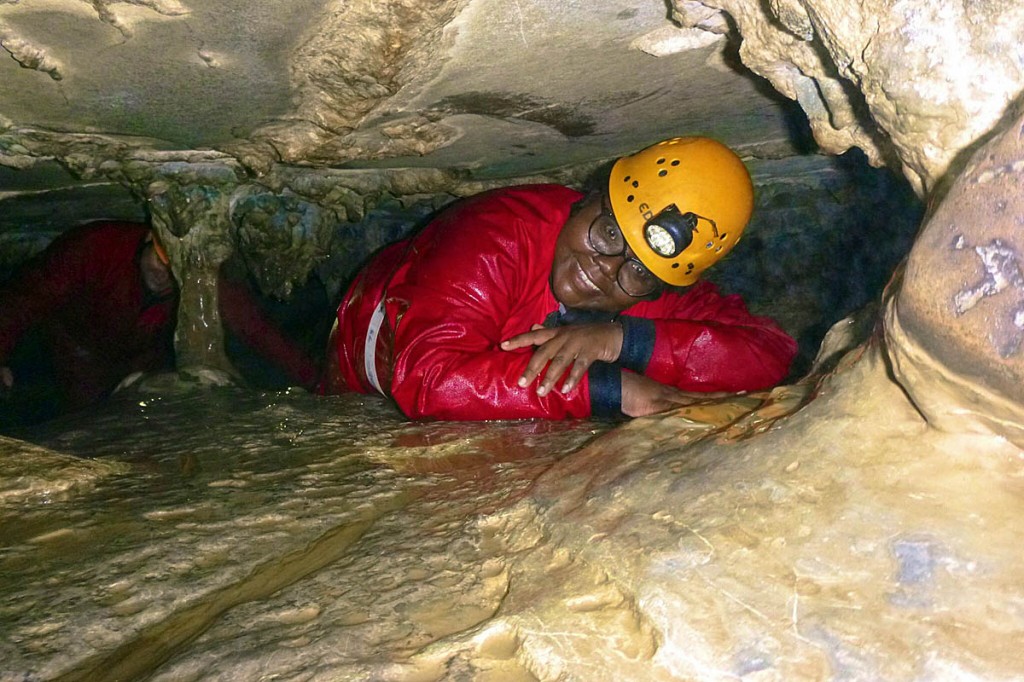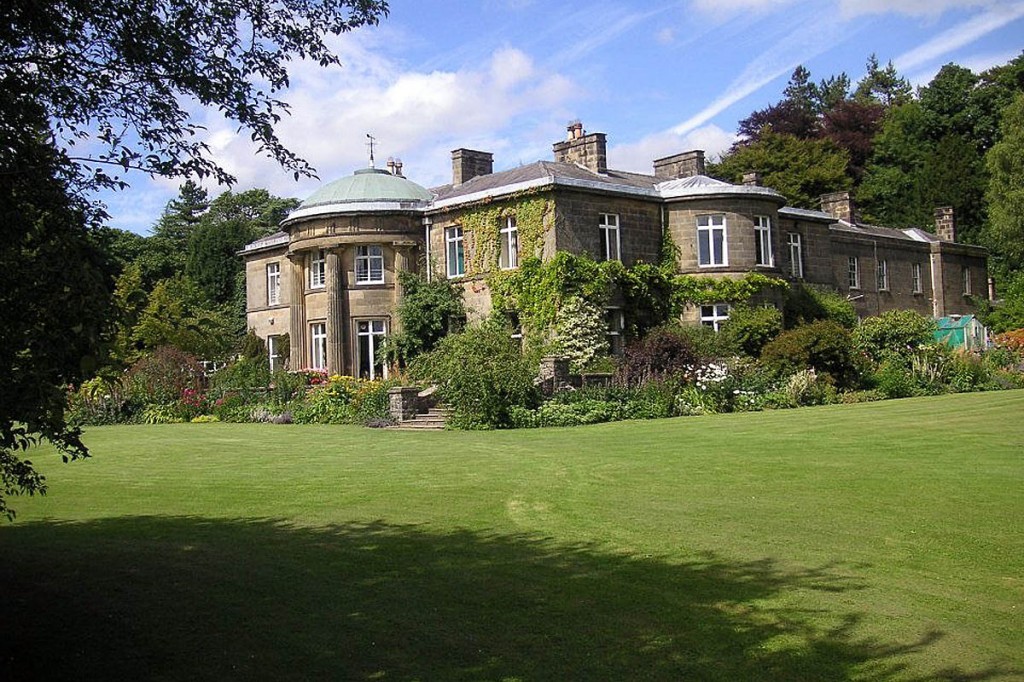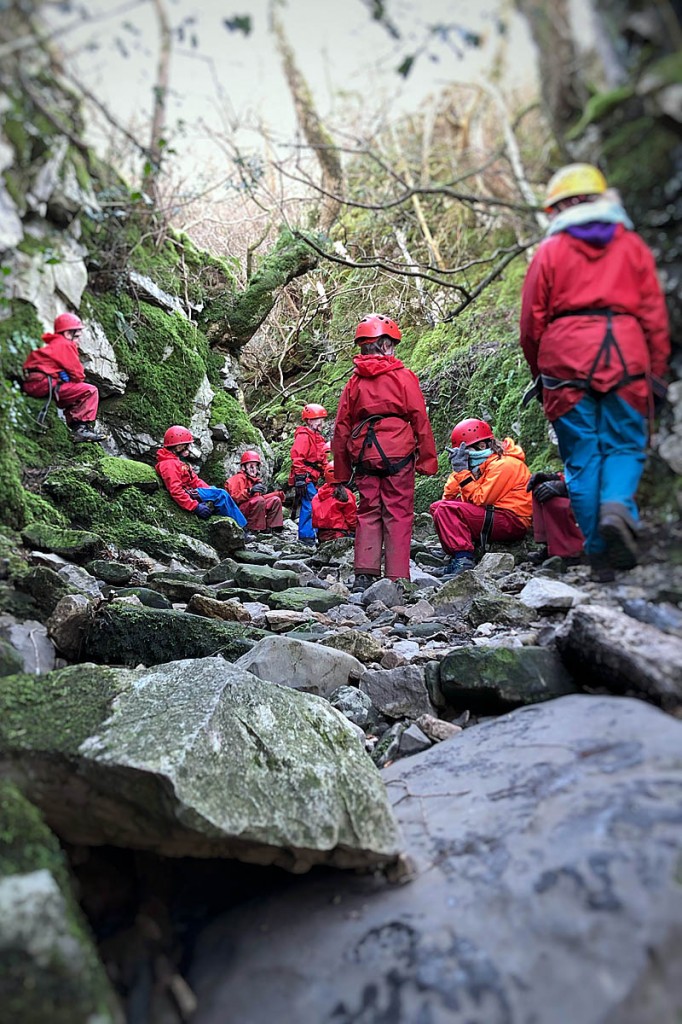Activities at an outdoor education centre in the Yorkshire Dales came to an abrupt end with the onset of the Covid-19 crisis and its accompanying lockdown and social distancing.
So how do those running Ingleborough Hall, a Bradford Metropolitan District Council-owned facility in Clapham, deal with the need to continue their education work without the ability to take to the hills and caves of the district?
Here, Jonathan Binney, operational lead for outdoor learning at the hall, outlines how he and his colleagues have dealt with this major change in their working lives. Mr Binney, who lives in the Bradford Council district in West Yorkshire, holds the Mountain Leader and Rock Climbing Instructor Awards, and Cave Instructor Certificate.
In the ever-changing and unprecedented times we find ourselves in, we are all adapting to new ways of living, whether in business, home or personal life.
Many of us now find ourselves way outside our ‘comfort zone’, just like the first time we climbed a mountain, rock-face or set foot underground, but this time it’s trying to juggle working from home, parenting and home-schooling. We are all regularly entering our ‘stretch zone’ but trying to avoiding our ‘panic zone’.
Here at Ingleborough Hall Outdoor Education Centre, we too have had to adapt to the times, changing the way we operate and facilitate outdoor learning.
Ingleborough Hall is a residential outdoor education centre situated in the picturesque village of Clapham, in the heart of Yorkshire Dales, and in the shadow of Ingleborough, home to many of the most famous caves in the country.
Ingleborough Hall is surrounded by eight acres of private grounds and dates back to the 18th century when it was owned by the Farrer family including, late in the 19th century, Reginald Farrer, one of Britain’s most famous horticulturalists, who travelled the world and whose legacy lives on in the wonderful flora and fauna still growing in the grounds. Today the hall is a 115-bed outdoor education centre under the management of Bradford Council.
At this time of year we would normally be entering a busy summer term, offering bespoke residential experiences to primary-age children, predominately from Bradford and Leeds areas, although schools from as far away as Cambridge have enjoyed our glorious landscapes and the activities on offer. Every group that comes through our doors experience the great outdoors in many and varied ways.
There is always the chance to climb local mountains of the Yorkshire Dales. For most this is their first experience of climbing, and we all remember the exhilaration that captured us as we climbed in the hills and mountains for the first time, how we now wish we had been able to experience it 11 years of age! As well as climbing and hillwalking, our groups take part in gorge-scrambling, caving, bouldering, tree-climbing, abseiling and orienteering, all run by our dedicated team of nationally qualified outdoor instructors.
As well as our school groups, we run family activity days, special coursers for young people with additional needs, and more advanced courses for people who wish to further their skills or take their experience to another level.
Our passion is educating young people outside the classroom, enabling experiences, offering them new skills, and helping them make memories which will last a lifetime. Through outdoor education and stretching young people in areas they would not normally experience, we hope to help equip them to face their life challenges of the future.
We tailor all our residential experiences and activity sessions to link with the national curriculum: educating children in the basic science of cave systems; land forms; the weather; the water cycle; flora and fauna; risk and benefit; keeping safe; comfort, stretch and panic zones; building resilience and having a growth mindset approach. Being able to offer all our activities, including caving, within an educational structure is an amazing way to both deliver, and see the benefits, of quality outdoor learning.
At Ingleborough Hall we have recently found ourselves out of our own ‘comfort zone’, deep inside our ‘stretch zone’, and heading towards the ‘panic zone’ and all due to the effects of the coronavirus pandemic. Early and difficult decisions had to be made. The toughest one was the decision to send home the school groups in residence and cut their stay short.
The next was to consider the safety of the young people, of the school teachers that accompany them, and our own staff at Ingleborough Hall, a discussion that inevitably led to a temporary closure of the centre and a suspension of all activities – a difficult decision but one that was soon vindicated when the government announced the closure of all schools.
We were disappointed and heartbroken at not being able to take the young people into the local hills, climbing for the first time or on their first underground adventure in the very heart of the Yorkshire Dales. We know only too well how many of them had been building themselves up for months, if not years, looking forward to their visit. Working hand-in-hand with schools we are constantly aware of the preparation work put in by teachers, yet here we were, totally helpless and unable to teach landforms, rock types, valleys and climbing techniques and so desperately needed to come up with a plan B.
As part of the residential experience at Ingleborough Hall we often spend time discussing the ‘zones of learning’ and encouraging the young people into their ‘stretch zone’ to promote learning and inner strength. We now found ourselves in the very same situation; we desperately wanted to carry on educating and enthusing young people, especially the ones that would normally have been visiting Ingleborough Hall.
All the Ingleborough Hall staff are working from home, to stay safe, save the NHS, and save lives. Our domestic staff are updating their knowledge using a variety of online courses; admin staff were carrying on their normal duties but from home; instructing staff were involved in activity planning ready for any restart date. As the operational lead at the centre I kept busy working with schools and groups on contingency plans to accommodate as many groups as possible if schools re-open this academic year.
We are so aware that many children are going to miss out on possibly their first, and for some their only, chance to go caving and how for many young people a residential experience becomes a rite of passage. Unfortunately more than 2,000 young people are missing out on this incredibly important and potentially life changing experience this summer at Ingleborough Hall.
Saddened by this thought while working from home, with my four-year-old daughter running around me in different dressing up costumes every 10 minutes, (including her caving helmet, headtorch and harness!), my nine-month-old daughter learning to walk and using my laptop cable as a teething toy, and my wife busily trying to home-school, I decided we had to try and carry on as much of our normal educational input as possible.
We needed to find a way to continue to engage with the young people of Bradford and Leeds and support them in outdoor learning in a remote way. So we turned to a medium understood by all young people: social media. We hoped that through some form of distance learning we might be able to help ease some of the pressure that both parents and teachers were facing with home-schooling.
Ingleborough Hall is very active on social media (Twitter @IngleboroughHal, Facebook @Ingleborough Hall Outdoor Education Centre, Instagram @Ingleboroughhall) where we highlight such things as what our groups and schools are doing, things that are happening at the centre. We have a band of ardent followers from schools, teachers, parents, young people and the wider community.
So this was the ideal platform share our love of the outdoors in an educational setting. But how? As much as we would love to take groups into the outdoors, ‘virtual’ climbing has as not yet caught on in the Yorkshire Dales. We had to think of a way to get ourselves back in to our ‘comfort zone’, back to what we do best, pushing ourselves into our ‘stretch zone’. With input from the instructors working at home, the idea of producing outdoor educational worksheets began.
We wanted to produce worksheets that would involve the key learning goals of Ingleborough Hall, link with the national curriculum, and cover the kind of things normally learnt while at Ingleborough Hall or completed on returning to school.
Our first worksheet, a simple creative writing exercise, the idea being to produce a short story using a picture of a limestone gorge that we often use with our groups, was a great success with over 10,000 impressions on Twitter and positive feedback from schools, especially ones who regularly visit Ingleborough Hall.
As the first attempt was such a hit it encouraged us to develop further worksheets to reach a wider audience. The aim was always to create worksheets linking into aspects of the school curriculum. These have included solving mathematical problems based on Ingleborough Hall, understanding different landforms including the limestone of the Yorkshire Dales, understanding the weather, and reading comprehension activities about cave systems.
The response has been amazing. Schools and parents alike love the worksheets and tell us the learning content is useful, informative, stimulating and exciting for their children. At the same time we have taken to the polls to find out ‘The best thing about Ingleborough Hall’. It has been quite an eye opener and, at the time of writing, the front-runners are caving and eating sticky toffee pudding!
We are currently working on themed weeks, where worksheets will cover many elements of the curriculum. Map week and DofE week are work in progress, as is compiling a ‘what have you done in isolation time capsule’ for younger people to try and keep them active in the safety of their own home. We are also looking to try and facilitate some open residential or activity courses for young people that have sadly missed out to give them another chance to experience what we have to offer and be educated in the outdoors.
At Ingleborough Hall we are trying to help both our community and a wider audience in these uncertain times. We eagerly await a time when normal life returns so we can re-open our doors, welcome our schools and groups back with open arms and to help them enjoy the Yorkshire Dales. A time when we can once again follow our passion of educating people above and below ground in our beautiful surroundings.
Until that time comes, we will carry on our unique distance learning worksheets and do all we can to help and support schools and groups in learning about the truly outstanding environment we live and work in.
Remember, the mountains, hills and the limestone of the Yorkshire Dales have been around for millions of years, and will still be there when we are able to enjoy them again.
More details of the centre are on the Ingleborough Hall website and its social media sites.




